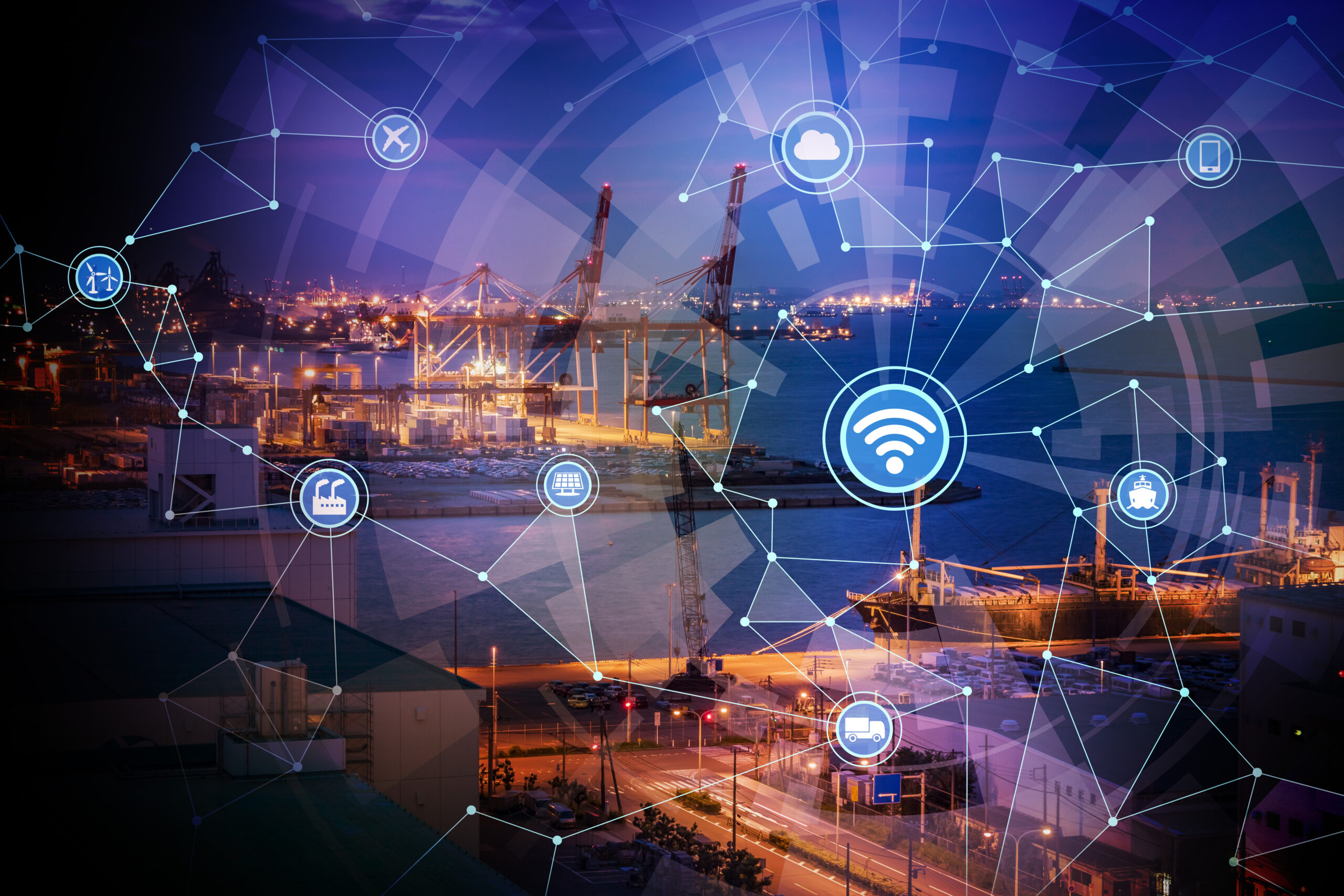
The maritime industry is rapidly evolving due to progress in digital technologies and increasing demand for world trade operations efficient, sustainable and safe. Smart ports and digital transport solutions are at the forefront of this evolution, introducing smart systems that optimize cargo handling, reinforce the transparency of the supply chain, and reduce environmental effects. These innovations not only improve operational efficiency but also define the future of marine logistics.
Also Read: Smart and Digital Logistics Porters: Next Border in World Trade
Understanding intelligent ports
Smart ports of advanced technologies such as Internet of things (IoT), Artificial Intelligence (AI), Blockchain and Automation to Simplify Port Operations. The sensors control the movement of the goods, the AI systems anticipate the freight optimization programs, and the automatic cranes are accurately loaded and loaded. These integrated systems help reduce congestion, minimize delay and ensure better use of port infrastructure. By replacing manual processes with data -driven operations, smart ports can control the higher load volume more efficiently.
The role of digital transportation
Digital transport refers to the use of connected operating systems and software solutions that manage shipping operations from reservation to delivery. Through cloud -based systems, transport companies can track ships in real time, optimize routes, and manage documentation electronically. This change of traditional paper -based processes eliminates the reduction of human errors and administrative delays. In addition, sharing real -time data between shipping lines, ports and logistics companies enhances coordination and enables faster decision making.
Increasing efficiency and reducing costs
One of the most important benefits of smart ports and digital transportation is the improvement of efficiency in the maritime supply chain. Automatic planning reduces waiting time for ships. Predictor analysis Help planning for maintenance before equipment failure occurs. Optimized transport routes reduce fuel consumption and directly reduce operating costs. These efficiency become more competitive and faster delivery time for world trade.
Stabilization
Sustainability for the transportation industry has become a priority, and smart technologies have an important role in reducing environmental impacts. Optimizing digital route helps minimize fuel consumption, reducing greenhouse gas emissions. Smart energy systems in ports manage more efficient power consumption, while automatic cargo transportation reduces the use of heavy fuel machinery. In addition, digital tools can monitor and report greenhouse gas emissions and enable transport companies to comply with the strict environmental regulations.
Supply chain strengthening
Global supply chains have been disrupted in geopolitical stress, epidemic and severe weather accidents. Smart ports and digital transport solutions help improve resistance by enabling real -time vision in the supply chain. In the event of delays or disorders, AI systems can quickly propose alternative paths or transport plans. This level of agility ensures that the business flow can quickly adapt to changing conditions and minimize its impact on jobs and consumers.
Integration of emerging technologies
The future of smart ports and digital transport is formed by the deeper integration of emerging technologies. Blockchain can create anti -manipulation records in transportation transactions and increase trust between business partners. Autonomous ships, now in the testing process, may be carried out of goods without human crews and reduce costs. Advanced AI systems can be predicted to predict forecasting, and ensure that ports for input cargoes are already well increased.
The road ahead
While adopting smart ports and digital transport technologies is accelerating, there are still challenges to overcome them, such as high implementation costs and the need for global standardization. Cooperation between governments, port officials, transport companies and technology providers is essential to open the full potential of these innovations. As Digital transformation Expansion in the maritime industry, ports and transport lines that cover these changes will be better to meet the demands of modern business.
End
Smart gateway and digital transport shows a major leap for marine supplies, technology combination, efficiency and sustainability to address the challenges of world trade. By embracing automation, real -time data and connected systems, the transportation industry can move to a future that is faster, cleaner and more flexible. This digital change is not just a technological update but the basis of the next maritime trade period.